
This story is part of Focal Point iPhone 2022, CNET's collection of news, tips and advice around Apple's most popular product.
Apple's new iPhone 14 lineup is now on sale, except for the iPhone 14 Plus which arrives Oct. 7. With a new generation here, you might be wondering if it's time to upgrade. The answer largely depends on which phone you currently have. If you have a recent model like the iPhone 13 or 12, you can afford to wait. If your phone is older though, it's worth figuring out how much you'll gain by jumping to a newer iPhone.
The $799 (£849, AU$1,399) iPhone 14 brings modest improvements that are appreciated but not game-changing, like nitty-gritty camera improvements, car crash detection and the support for satellite-based emergency messaging. (Hopefully, you'll never be in a situation where you'll need to use the latter two).
The iPhone 14 Pro and Pro Max's upgrades are more dramatic, but you still don't need to upgrade unless you can score a great trade-in deal. Apple saved its most interesting new features for the Pro lineup, including the Dynamic Island that replaces the notch, the new A16 Bionic processor and a 48-megapixel main camera sensor. If you prefer larger phones, you may want to wait until Apple releases the iPhone 14 Plus before making your decision.
It's important to remember that you don't have to buy the iPhone 14 to get camera, battery and performance improvements from an earlier iPhone. The recently discounted $699 iPhone 13 or the smaller $599 13 Mini could be a good option if you still want more storage, faster performance and an improved camera, especially if you are coming from a phone that's three years old or more. It's also the only option if you want the smaller Mini and its 5.4-inch screen, since the iPhone 14 line eschews that size in favor of the new $899 iPhone 14 Plus with a 6.7-inch screen.
Purchasing decisions will always vary depending on budget, how well your phone works right now and personal needs, so there's no simple answer that works for everyone. But here are the biggest differences between the iPhone 14 lineup and previous iPhone generations to help you make a decision.
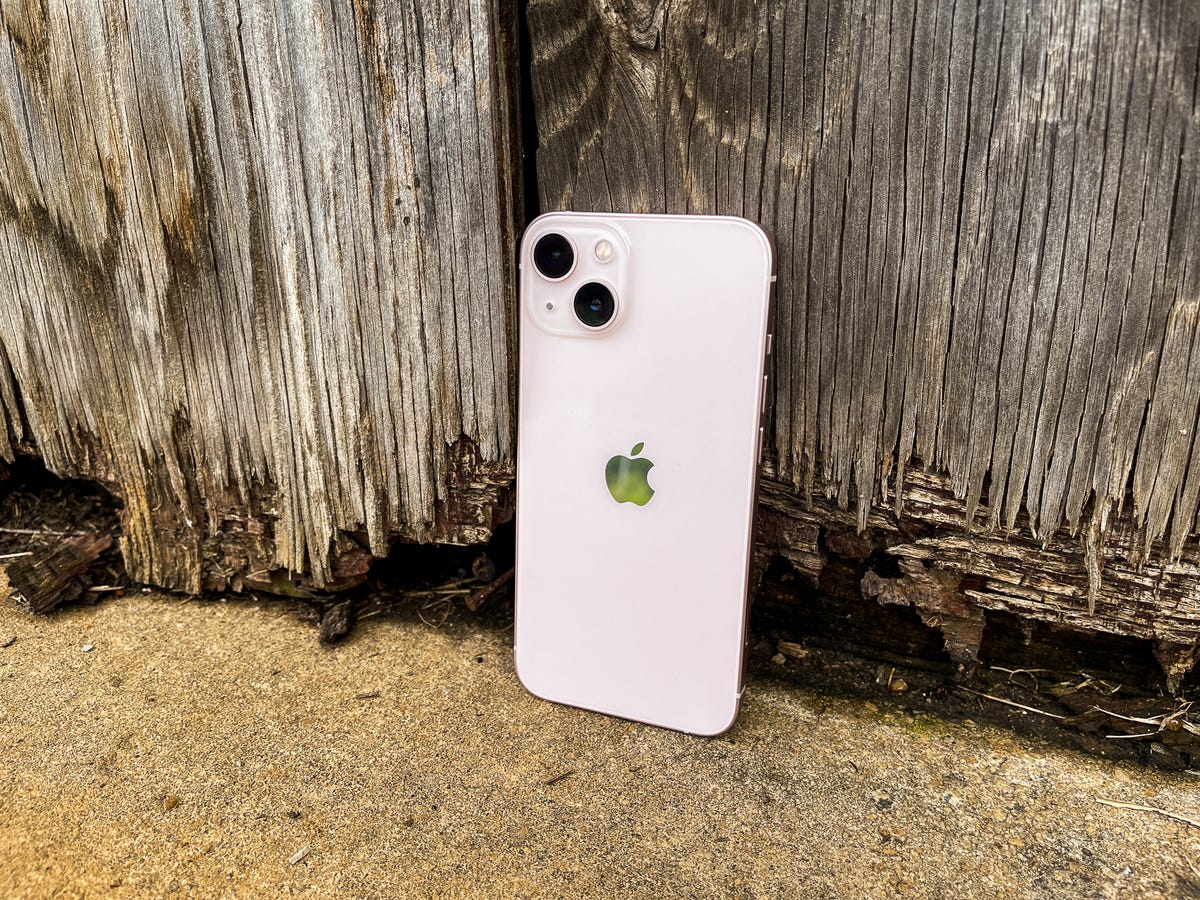
The iPhone 13.
Patrick Holland/CNETiPhone 14 vs iPhone 13, 13 Pro, 13 Pro Max
The iPhone 14 lineup introduces new features such as car-crash detection, the removal of the physical SIM card for US phones, and enhanced cameras on the rear and front. Despite those changes, iPhone 14 isn't different enough to justify upgrading from the iPhone 13. And even though Apple finally got rid of the infamous notch in the Pro Models, the 14 and 14 Plus still have one – it's the same smaller notch that debuted on the iPhone 13 series. In fact, the iPhone 14 represents "one of the most minimal year-over-year upgrades in Apple's history," according to CNET's Patrick Holland, who reviewed Apple's latest phones.
The iPhone 14 and iPhone 14 Plus have the A15 Bionic chip from last year's iPhone 13 Pro and iPhone 13 Pro Max. The 14's screen looks exactly like the one on the 13. Perhaps the most prominent change this year is the introduction of a larger version of the iPhone 14 called the iPhone 14 Plus, which has a 6.7-inch screen like the Pro Max. That means you no longer have to splurge on Apple's most expensive iPhone if you want the largest screen possible.
Of course, the iPhone 14 is still highly-rated, but we recommend saving your money and skipping the upgrade. If you've made up your mind to upgrade, we suggest going for an iPhone 14 Pro or iPhone 14 Pro Max if you can afford it. These phones are expensive, but buys you access to some salient changes -- namely a high-refresh rate display, Apple's new Dynamic Island multitasking bar, an always-on display as well as better cameras among other features.
The bottom line: If you have an iPhone 13 or 13 Pro, don't upgrade. But if you are determined to get a new phone, go for the iPhone 14 Pro or 14 Pro Max, especially if you must have the Dynamic Island right now.
Read More: iPhone 14 Pro and 14 Pro Max Review
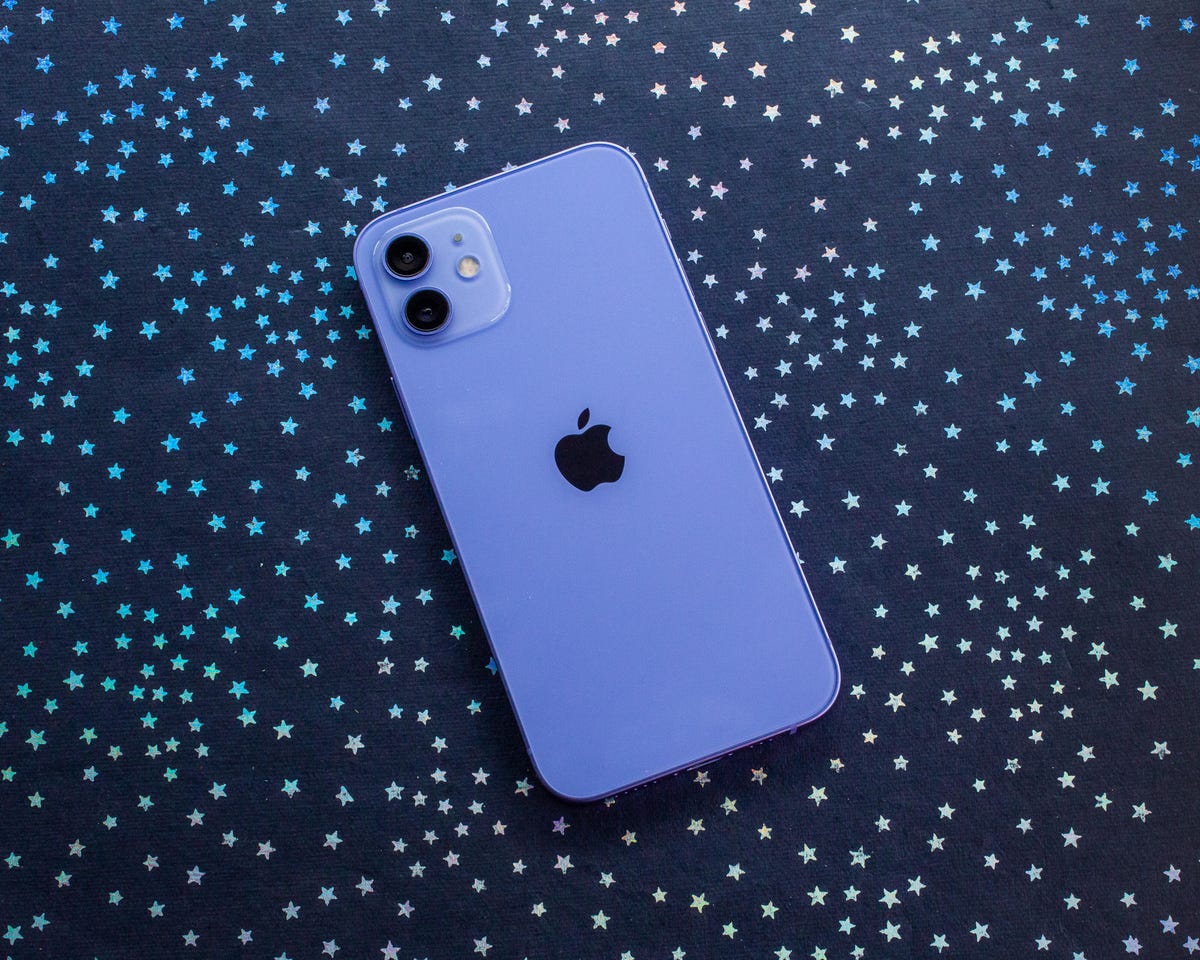
The iPhone 12.
Sarah Tew/CNETiPhone 14 vs iPhone 12, 12 Pro
Even though the iPhone 12 lineup was released two years ago, they still share many similarities with Apple's latest phones. Both the iPhone 12 and iPhone 14 support 5G, run on fast processors, offer great cameras and include MagSafe accessory compatibility.
Since the iPhone 14 is more of a refresh than a major upgrade, we recommend hanging onto your iPhone 12 if it's still in good condition. You can take advantage of the iPhone's latest software features such as lock screen customizations, widgets and the ability to unsend text messages by upgrading to iOS 16.
The iPhone 14 received a few notable camera upgrades, like a larger sensor, a new lens with a faster aperture, improved photo processing and Action Mode which makes the movements in videos look smoother when you record them.
But the iPhone 12's cameras remain excellent even though they are two years old. The iPhone 12 has a 12-megapixel dual camera system, while the iPhone 12 Pro includes a third camera with a telephoto lens. Check out our iPhone 12 review to see how the cameras held up when CNET put them through the paces.
It's worth remembering that you get more noticeable upgrades with the iPhone 14 Pro and Pro Max. These include everything that's new in the 14, as well as an upgraded main camera with a larger 48-megapixel sensor, an ultrawide camera that allows you to take Macro photos and a third camera with a telephoto lens. If you can get a good trade-in deal that significantly knocks down the iPhone 14 Pro's price, upgrading from the regular iPhone 12 is a decent step-up.
The bottom line: Hold onto your iPhone 12 for another year since the iPhone 14 isn't dramatically different. However, the iPhone 14 Pro and 14 Pro Max bring more significant changes that could be worthwhile if you can snag a good trade-in deal.
Read More: All The "New" iPhone Features That Have Been on Android For Years
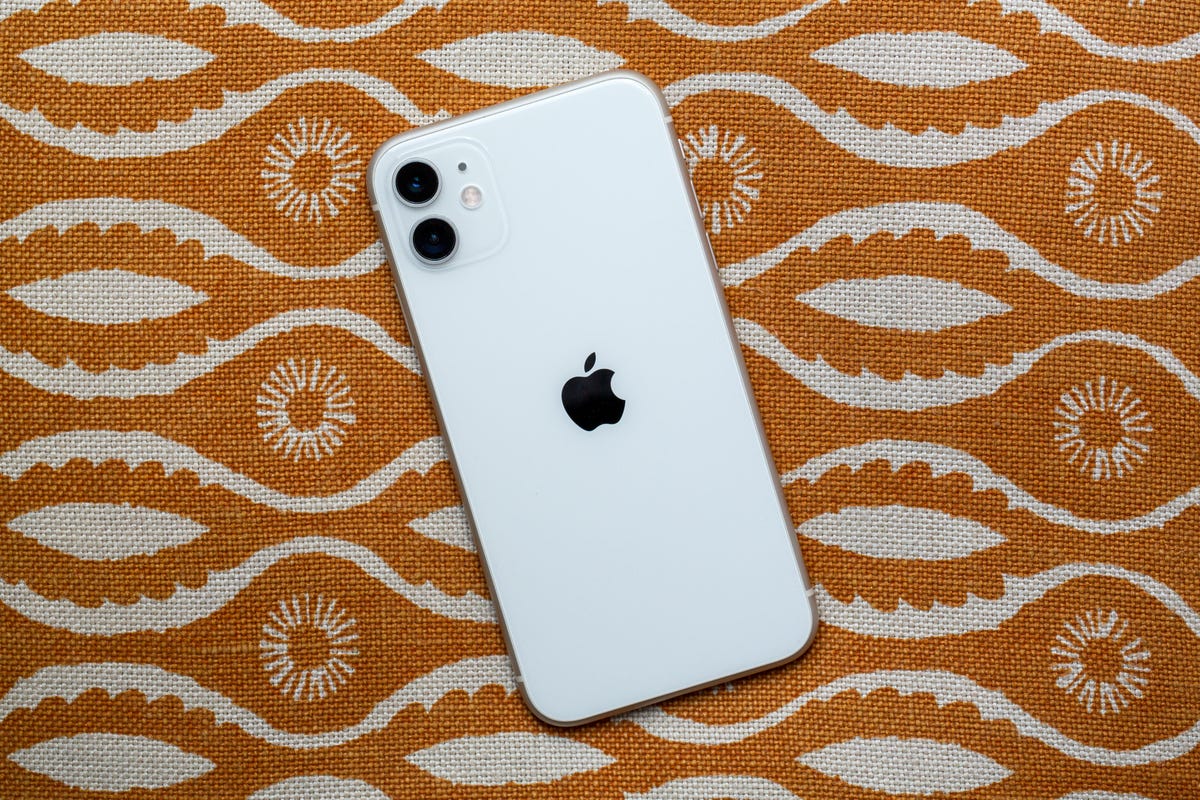
The iPhone 11.
Angela Lang/CNETiPhone 14 vs iPhone 11, 11 Pro
If you're using an iPhone 11, we recommend upgrading to an iPhone 14 (or even an iPhone 13). In the last three years, Apple has made enough changes to features including battery life, performance, screen quality, cameras and durability to merit buying a new iPhone.
Upgrading to the iPhone 14 will get you 5G support, more storage (128GB at the base level versus 64GB) a better main camera with a wider aperture lens, new video shooting options like Action mode and Cinematic mode, a better selfie camera with Night mode and Apple's Photonic Engine processing, compatibility with Apple's MagSafe accessories, longer battery life and faster performance. That's in addition to car crash detection and Apple's new emergency satellite messaging feature.
Most of the photography and videography improvements are dramatic changes compared to the iPhone 11. And the longer battery life and additional storage space are welcomed upgrades that you'll notice on a daily basis.
As previously mentioned, if you go for the 14 Pro instead you get a new 48-megapixel main camera, a closer 3x optical zoom versus the 11 Pro Max's 2x zoom, the Dynamic Island instead of the notch and numerous other upgrades like an always-on display.
The bottom line: The iPhone 14 lineup includes enough changes to justify upgrading from the iPhone 11. If your phone is still in good condition and you're satisfied with it, install iOS 16 and hold onto it for another year.
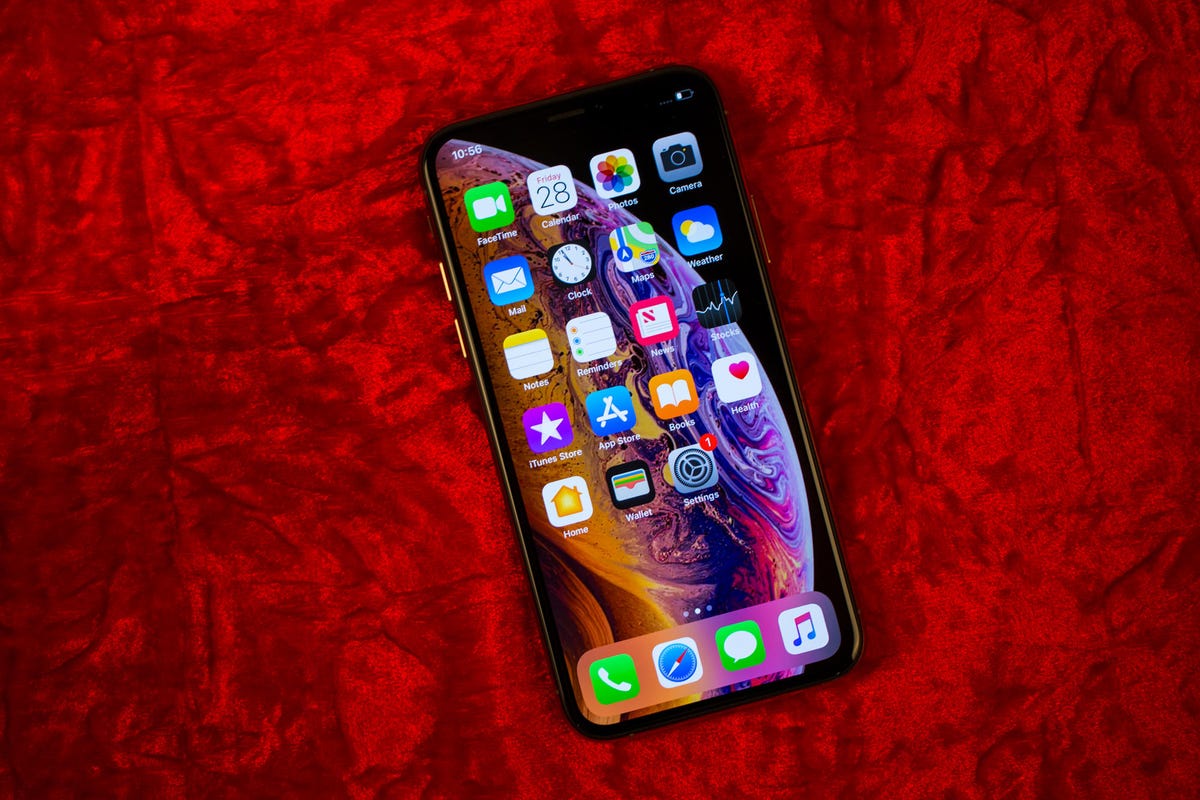
The iPhone XS
Josh Miller/CNETiPhone 14 vs. iPhone XS, XS Max, XR
If you bought the iPhone XS, XS Max or XR at launch, that means your phone is roughly four years old and may be starting to feel sluggish. That alone makes a strong case for upgrading, but there's plenty more to gain.
Compared to the iPhone XS, the iPhone 14 provides six hours of additional battery life (according to Apple's estimates). In addition to everything that's new in the iPhone 14 specifically, you'll also get other upgrades Apple has added to the iPhone over the past few years.
Those include 5G support, more storage (again, you get 128GB versus 64GB), faster performance and a better camera. The iPhone XS generation lacks Night mode for taking clearer pictures in the dark, and it also doesn't have Deep Fusion, which is Apple's name for its image processing technique that improves detail and clarity in darker environments. The XS's front camera has a lower 7-megapixel resolution compared to the larger and newer 12-megapixel sensor on the iPhone 14. If you're upgrading from an iPhone XR, you'll also get an additional camera with an ultrawide lens for taking broader group shots for the first time.
The iPhone 14 also has a larger 6.1-inch screen compared to the iPhone XS' 5.8-inch display (the iPhone XS Max has a 6.5-inch screen, while the XR's screen is also 6.1 inches). The design has also changed quite a bit over the past four years; newer models have flat edges, a slightly smaller notch, different finishes and a new squircle-shaped camera module that replaces the pill-shaped rear camera cutout. So your phone will not only feel more modern, but it'll look newer, too.
The bottom line: If you have an iPhone XS, XS Max or XR it's definitely worth upgrading. You get a noticeable boost in camera quality, battery life and performance among other areas.
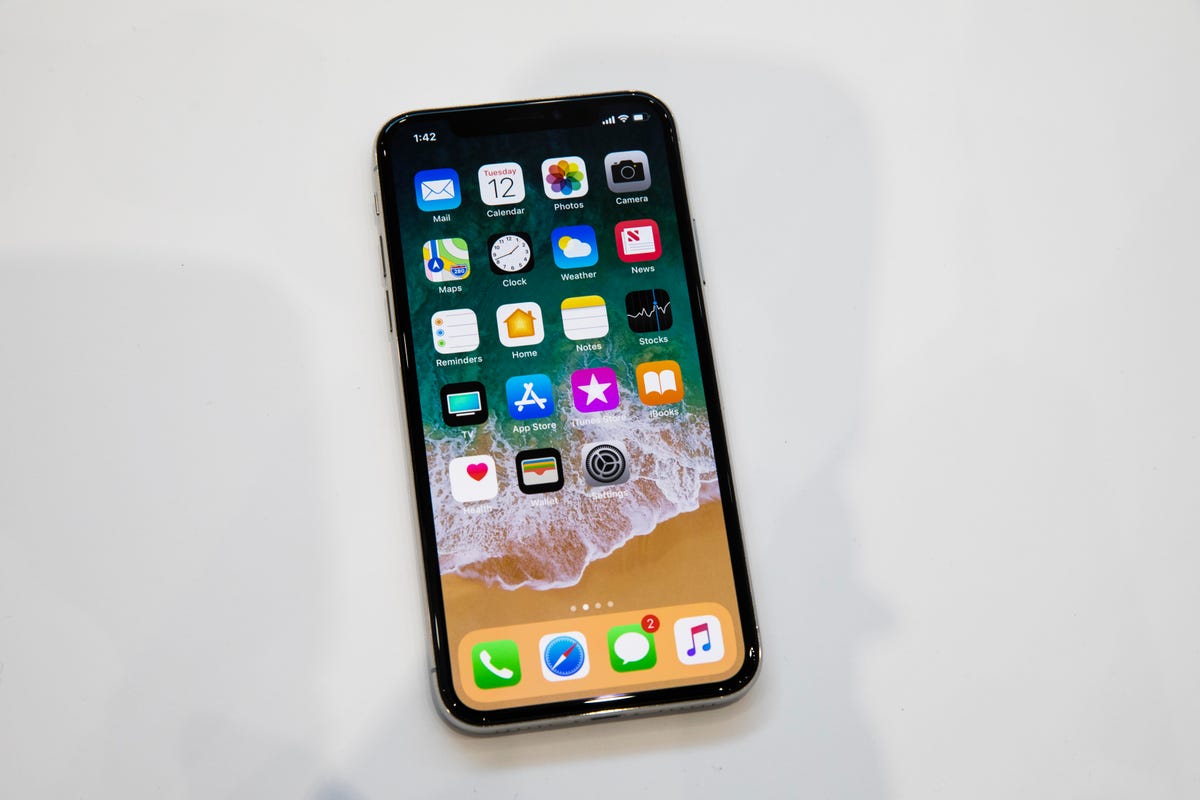
The iPhone X.
James Martin/CNETiPhone 14 vs. iPhone X
The iPhone X is about five years old, which means it probably feels slow and the battery life isn't what it used to be. With an iPhone 14, you'll notice a major upgrade in both categories, as well as design, improved durability, connectivity and camera quality.
Let's start with performance. The iPhone X runs on a much older A11 Bionic chip that's now five years old, while the iPhone 14 runs on Apple's A15 Bionic processor. The iPhone 14 Pro and Pro Max run on Apple's newer A16 Bionic chip. Both new processors are way ahead of the A11 chip, which only has a two-core neural engine compared to the A15 Bionic's 16-core neural engine.
The iPhone's neural engine powers tasks that rely on machine learning and artificial intelligence, which are becoming a bigger part of the iPhone experience. Things like app suggestions in the App Library and Apple's Translate app rely on machine learning to function, which indicates that the iPhone X may struggle to keep up with newer capabilities.
The iPhone X also has a dual-lens camera similar to that of the iPhone XS, meaning it's missing the iPhone 14's camera hardware improvements in addition to Night mode, Deep Fusion and the ability to control depth-of-field and blur levels in Portrait mode. Like the iPhone XS, you're only getting a 7-megapixel front camera compared to a 12-megapixel selfie camera on Apple's newer phones.
Apple's 5-year-old iPhone also has shorter battery life, with Apple estimating it should last for 13 hours when playing back video compared to 20 hours on the iPhone 14. The iPhone 14's 6.1-inch screen is bigger than the 5.8-inch display on the iPhone X, and it should also be brighter since it can reach 800 nits of max brightness compared to the iPhone X's 625-nit screen.
The iPhone 14 supports Dolby Atmos and spatial audio playback, while the iPhone X just has stereo playback. That's probably not a deal breaker, but might be a big deal if you watch a lot of video on your phone without headphones.
And of course, there's the benefit of getting car crash detection, Apple's new emergency SOS messaging via satellite option, better water resistance (up to 6 meters for 30 minutes versus 1 meter), 5G support, more storage space, Ceramic Shield for the display, a refreshed design and the option to use MagSafe accessories on the iPhone 14.
The bottom line: If you have the iPhone X, it's time to upgrade. The iPhone 14 will feel new in just about every way, from the camera to performance, battery life and the way it looks and feels.
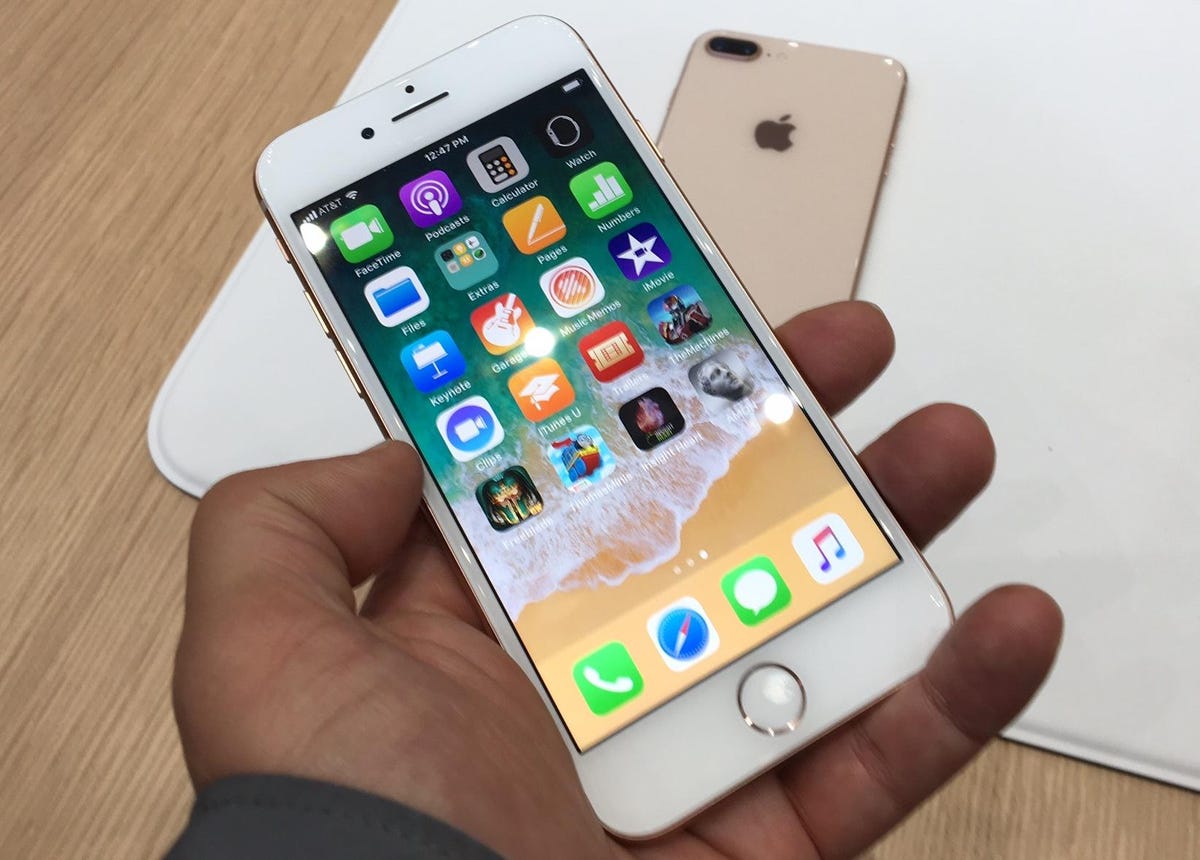
The iPhone 8 and 8 Plus.
Gabriel Sama/CNETiPhone 13 vs. iPhone 8, 8 Plus
The iPhone 8 generation has Apple's legacy iPhone design, which is fitting for a phone that's now five years old. If you have an iPhone 8 and are considering an upgrade, many of the reasons to do that are the same as the reasons to upgrade from the iPhone X. The processor is getting old, which could make it harder to use newer iPhone features that rely on machine learning. The cameras are outdated and lack features like Night mode (the smaller iPhone 8 doesn't have Portrait mode either, since it only has one lens). By upgrading, you'll get more storage, significantly longer battery life, support for 5G connectivity and MagSafe accessories, too.
But the biggest difference is in the iPhone 8's design, which is much more than just an aesthetic upgrade. Phones with Apple's more modern edge-to-edge screen trade Touch ID for Face ID, which lets you unlock your phone and authenticate payments just by looking at your device. If you prefer Touch ID over Face ID, especially since it's difficult to use Face ID while wearing a mask, you might want to at least consider upgrading to the $429 iPhone SE since it has the same processor as the iPhone 13, 5G compatibility and plenty of photography improvements inside a similar body to the iPhone 8.
Upgrading to the iPhone 14 has a noticeable giant jump in display size and quality. Since newer phones like the iPhone 14 don't have a home button, there's more room for Apple to expand the screen without making the device feel cumbersome. The iPhone 14's screen is even larger than the iPhone 8 Plus' 5.5-inch screen despite the device itself feeling more compact. (And for more perspective, consider that the iPhone 13 Mini has a 5.4-inch display). If you go for the 14 Pro you get another big change: the Dynamic Island, which transforms the notch area into an area for viewing alerts, system notifications and apps running in the background like Spotify or Apple Music.
From personal experience, switching from an iPhone 8 (which has a 4.7-inch screen) to the iPhone 12's 6.1-inch display makes reading, checking email and watching videos much more comfortable. The screen isn't only larger, but it's also more vibrant with better contrast since it uses OLED display rather than LCD.
The bottom line: The iPhone 14 is a huge jump from the iPhone 8. Everything about this phone will feel fast and new: the much larger and bolder screen, Face ID, the speedier processor, its longer battery life and of course the substantially upgraded cameras. Of note however, if you really want to get a newer iPhone but keep the iPhone 8's design, trade up to the current 2022 iPhone SE.
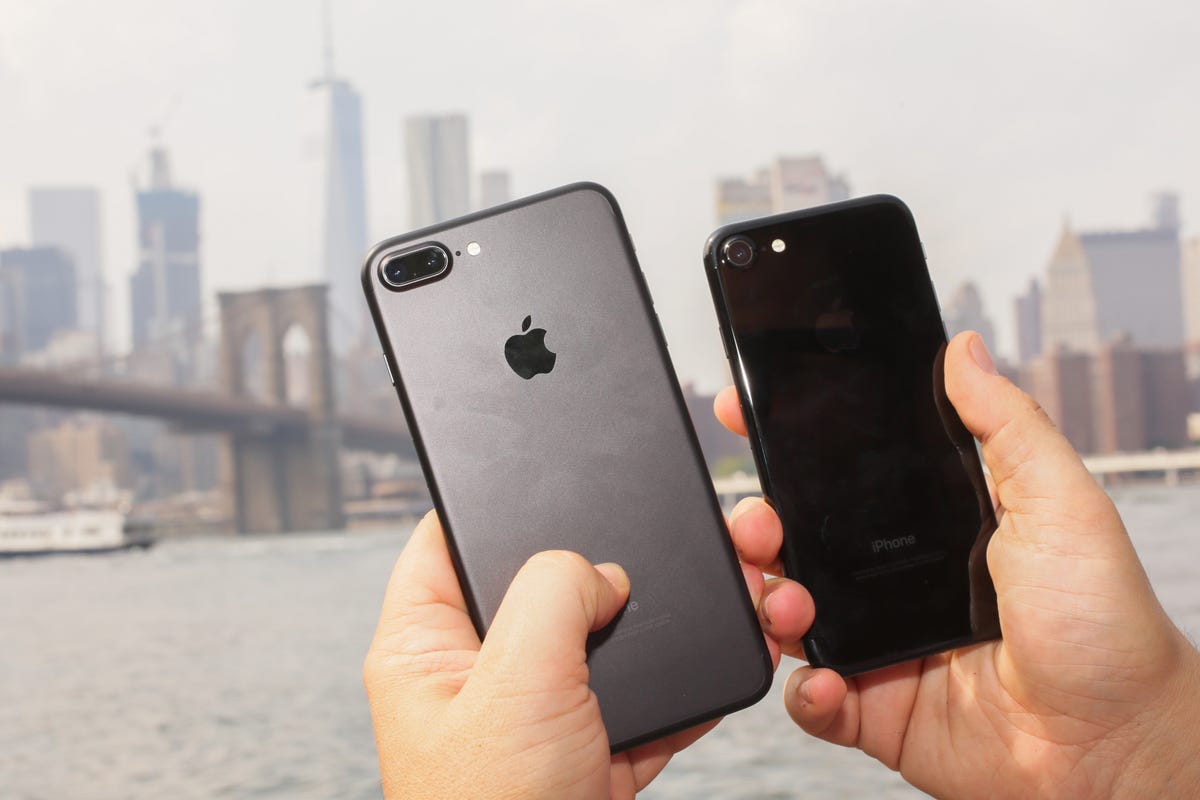
The iPhone 7 Plus and iPhone 7.
Sarah Tew/CNETiPhone 13 vs. iPhone 7, 7 Plus
If you have an iPhone 7, it's time to upgrade. It is six years old, and it shows in everything from the processor to the camera and storage space. The iPhone 7 doesn't support iOS 16, providing even more incentive for acquiring a newer device.
While we generally recommend choosing the iPhone 14 Pro over the iPhone 14 in most cases, coming from a phone this old, means you'll find plenty that's new in the iPhone 14.
The iPhone 7 runs on an aging A10 Fusion processor, which doesn't even have a neural engine and is several years behind Apple's latest technology. It has a single-lens camera without Portrait mode, while the 7 Plus has two cameras. But those cameras lack many modern features like Night mode and Portrait Lighting, which adds specific lighting effects to your portraits.
Similar to the iPhone 8, the iPhone 7 series includes Touch ID and comes in either 4.7- or 5.5-inch screen sizes. But since the iPhone 7 is a year older than the iPhone 8, it's also missing wireless charging, which means you must plug it in to charge.
If you've owned an iPhone 7 for several years, it's probably bursting at the seams since it has substantially less storage space. The entry-level iPhone 7 only came with 32GB of space, which is a quarter of capacity available on the cheapest iPhone 14.
The iPhone 14 brings major gains in nearly every aspect. The standard model has a larger, bolder and brighter bezel-free 6.1-inch screen that still feels compact since it doesn't have a home button. It runs on Apple's A15 Bionic processor, which is better equipped to handle newer iOS features. And it has a drastically improved dual-lens camera with a larger main camera sensor and advanced features like the new Cinematic mode for video and Night mode. Plus, Apple's estimates indicate it'll offer seven hours of additional battery life during video playback, which is a huge bump.
The bottom line: If you're still holding onto your iPhone 7, there's no question that you're due for an upgrade. A better screen, compatibility with iOS 16, longer battery life and more advanced cameras are just a few of the gains the iPhone 14 has to offer over the iPhone 7. And similarly to my recommendation with the iPhone 8, if you really want to keep the home button and save some money, consider the iPhone SE. It gives you more recent performance upgrades while keeping a similar phone style.









 Add Category
Add Category